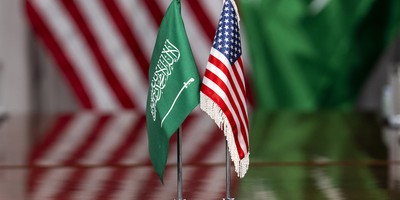Let’s face the elephant head on. What considerations should we give to personal religion when evaluating presidential candidates?
This uncomfortable topic necessarily became part of the discussion when Robert Jeffress, Senior Pastor of the First Baptist Church of Dallas, referred to Mormonism as a cult and presidential candidate Mitt Romney as a “competent non-Christian.” The basis for Pastor Jeffress’ assertion is the accepted protestant definition of “cult” as a religion that adds to or detracts from scripture. Jeffress explained that the “Southern Baptist Convention ... has officially labeled Mormonism as a cult.”
Advertisement
To be fair, the Mormon Church maintains that its founder was told directly by Jesus Christ in 1820 that the creeds of the Baptist Church, along with the Methodists and the Presbyterians, are “an abomination in his sight; that [their] professors were all corrupt.”
OK; No surprises here. Most religions claim exclusivity in their essential beliefs. And Mormonism differs with traditional Christianity in the essentials. Certainly adherence to religious fundamentals is germane in selecting the leader of a church. How pertinent is this attribute to selecting the leader of the nation?
America’s Founding Fathers did address this topic in Article VI of the United States Constitution: “The Senators and Representatives before mentioned, and the Members of the several State Legislatures, and all executive and judicial Officers, both of the United States and of the several States, shall be bound by Oath or Affirmation, to support this Constitution; but no religious Test shall ever be required as a Qualification to any Office or public Trust under the United States.”
But they also gave us the superlative principle of instituting a government that ensures natural law; “We hold these truths to be self-evident, that all men are created equal, that they are endowed by their Creator with certain unalienable Rights, that among these are Life, Liberty and the pursuit of Happiness.”
Recommended
Advertisement
Recognizing these rights demands acknowledgement of the existence of a creator of man. Several specific attributes of this creator are directly implied in the Declaration. This “Nature’s God” is one who values every human to the point of granting them individual rights. This God values the lives and liberty of every person equally. This described God even intends for his creation to revel in happiness.
America’s God does not fit the description of every religion’s belief system. Would it be acceptable for America to elect a president whose personal faith is in conflict with the Declaration’s essentials? Never. Not ever.
Islam is an obvious example of a religious faith whose principles are in direct conflict with America’s Declaration. Sharia Law; enough said. And no atheist should ever be invited to take the oath of office. But, what about a Mormon?
It is evident that some of America’s Founding Fathers were Deists; folks who believed in the existence of God, but who did not ascribe to the personal attributes of the God described in the Bible. They pledged their lives, their fortunes and their sacred honor to establish a new nation that would ensure tremendous liberty, especially the freedom of religious beliefs. They specifically risked allowing the practice of errant beliefs by the governed in order to prevent enforcement of errant beliefs by the government.
Advertisement
I believe that considering a candidate’s religious faith is a valid way for voters to judge their fitness for public office, asking whether their religion conflicts with the Declaration of Independence. But, I also think that we need to go further; to judge the candidates’ wisdom.
Jimmy Carter was an openly professing Christian candidate. He sucked as a president.
Even Robert Jeffress stated that he would prefer Mitt Romney, whose membership is the Church of Jesus Christ of Latter Day Saints over Barack Obama, whose membership for twenty years was Jeremiah Wright’s Trinity United Church of Christ.
Mitt Romney is not my first choice. But Barack Obama would certainly be my last.

























Join the conversation as a VIP Member